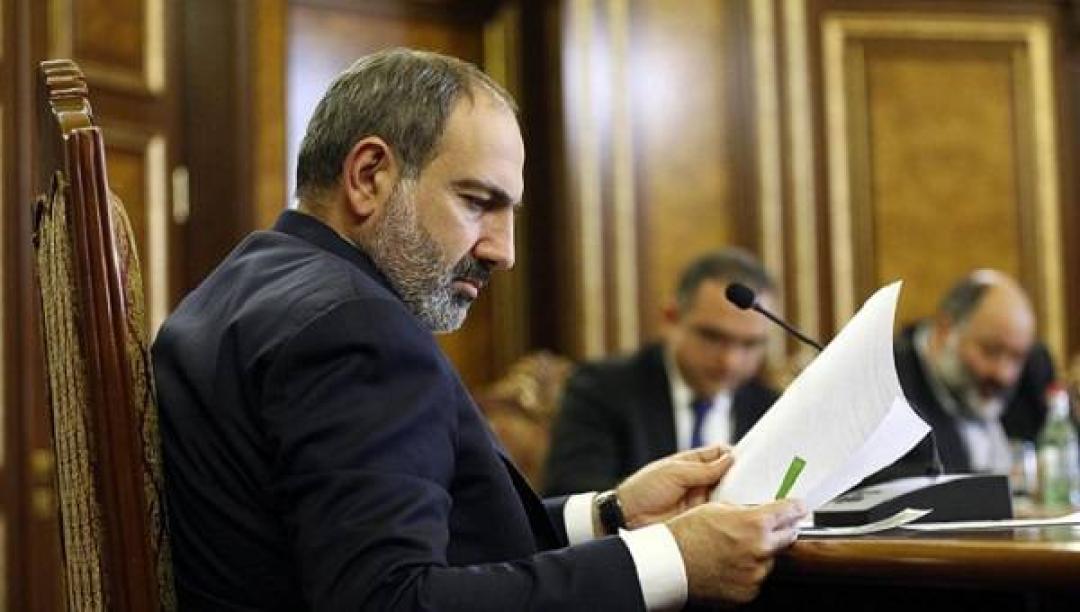
Armenian government adopts economic aid package

On 19 March, Armenia’s Health Ministry reported that the number of coronavirus-infected persons in Armenia increased to 122 people. According to the ministry, most of the cases stemmed from the “Etchmiadzin incident” and the outbreak of the virus in a factory in Yerevan.
With of the growing number of cases, Armenia’s government is looking to expand its capacity to place patients in hospitals. Health Minister Arsen Torosyan said that Yerevan’s specialized hospital for infectious diseases will get dozens of additional wards by the end of the week. “Construction of the modular reception hall at Nork Infectious Diseases Hospital is in full swing. We are going to have 40 new wards in 3-4 days,” he announced in a Facebook post.
A day earlier, Armenia’s Deputy Prime Minister Tigran Avinyan announced that the restrictions on leaving the town of Etchmiadzin were lifted. He said that the decision was prompted by the fact that the detected cases of coronavirus did not go beyond the circle of people with whom a patient who had tested positive for the virus about a week ago (Caucasus Watch reported).
Despite the outbreak of the virus in the country, Armenia’s Prime Minister Nikol Pashinyan promised that his government will provide at least 150 billion drams (over $300 million) in assistance to the economy. Pashinyan said that he viewed the current situation as “point zero” from which the “economic revolution” advocated by his government should start. “Now everything is collapsing, and we get a large construction site. We should be thinking about building a new life, a new state, a new society, a new opportunity and a new economy on this site,” Pashinian said. “Industrial relations will collapse, and we will need to figure out where to invest money,” Pashinyan emphasized.
He said that at the first stage 25 billion drams will be allocated so that the loans companies will take from Armenian banks in drams to pay salaries to employees and their utility bills, fulfill their tax obligations and purchase raw materials will be co-financed by the government with zero interest rate, and the interest of the bank will be subsidized so that it is also equal to zero. In addition, he noted that the task was set to ensure that agricultural loans were subsidized so that the interest rate on them was reduced to zero.
Further, he said that a package of 30 billion drams had been prepared for urgent social assistance in order to exclude possible social shocks and to tread out “social fires.”
The remainder of the package would be spent, in Pashinyan’s words, on the adaptation of Armenia's economy to the “post-coronavirus world.” “The largest package is 80 billion, although I can say that here, we will have unlimited financing, we invest in those projects that will be innovative in the sense that these companies will prepare themselves and Armenia for a new world. We are entering the new world, the old one no longer exists. The problem is that we cannot predict what the post-coronavirus world will be, but we can design it ourselves,” he said.
Amidst the state of emergency in the country, journalists and civil society representatives voiced their concerns over the restrictions on media, calling on the government to “stop the censorship.” Under the state-of-emergency rule introduced by the Armenian government on 16 March, media as well as social media users in Armenia face administrative fines for posting information on the coronavirus-related situation that “does not reflect reports from official sources.” The government said the measure was needed to prevent “panic-mongering” during the 30-day period of the national emergency declared to slow down and contain the spread of the highly contagious and potentially deadly virus. Two media outlets – the Aravot and Hraparak dailies – have already been forced to remove or edit their stories under penalty of fines between 500,000 and 800,000 drams ($1,000-$1,600).
See Also


Armenia Records 5.9% GDP Growth in 2024, Missing 7% Goal

Yerevan Balances Strategic Ties with Both US and Russia, Says Foreign Minister

FM Mirzoyan: Peace Deal with Azerbaijan Is Within Reach

Pashinyan and Erdogan Hold Call, Reaffirm Commitment to Ongoing Dialogue

